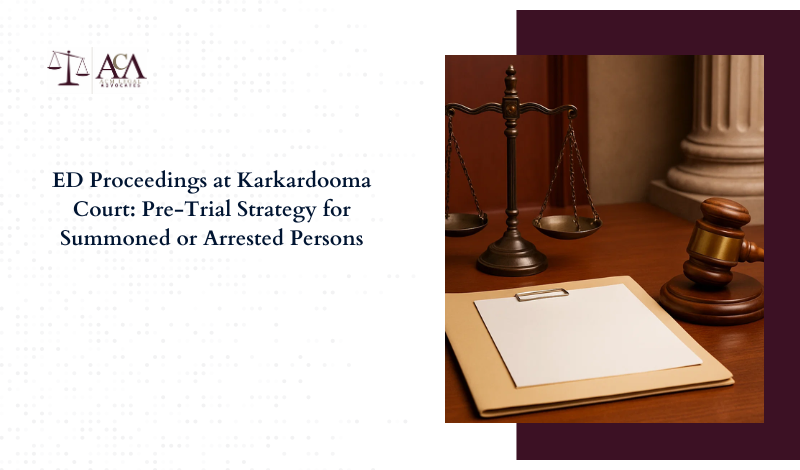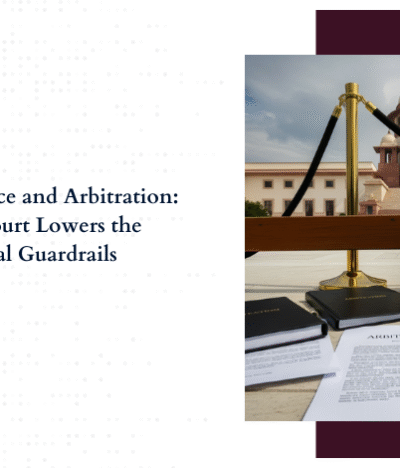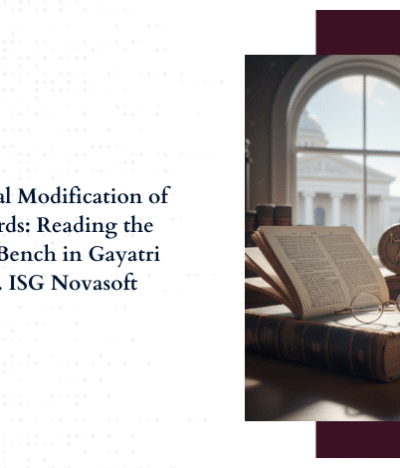1. Verify Jurisdiction and Cognizance Under PMLA
- First ascertain whether the Special Court at Karkardooma (usually Court‑4 or Court‑6) has formally taken cognizance of an ED complaint under Section 44(1)(b) of the PMLA.
- Delhi High Court has held that cognizance under PMLA is taken via CrPC Sections 200‑204, except where PMLA specifically overrides them,
Preparation Step: Secure certified copy of the complaint and cognizance order, to understand charges and legal basis.
2. Scrutinise Arrest Procedures and Seek Legal Redress if Flawed
- The Supreme Court (May 2024) ruled that ED cannot arrest an accused after special court summons without applying separately for custody; arrest must fulfill the Section 19 requirements—“reason to believe,” judicial recording in writing, and based on material in ED possession.
- The Delhi High Court has also invalidated indefinite or non‑judicial custody—holding detainees must have valid Section 167(2) CrPC orders; absence renders detention illegal.
Preparation Step: Demand and preserve arrest memo, recording of reasons, remand order and time‑logs. If defective, file immediate writ for habeas corpus or quash.
3. Challenge Alleged “Proceeds of Crime” on Evidentiary Grounds
- Delhi courts have emphasised that the mere assertion of “proceeds of crime” is not sufficient; ED must place tangible evidence linking property or funds to predicate offences.
Preparation Step: Gather documentary evidence demonstrating lawful sources, relevant timelines, and break in alleged nexus. Prepare summary representations to file before court.
4. Prepare for ED Summons or Remand Proceedings Strategically
- If you appear on summons or remand, be prepared: counsel should address Section 19 compliance, insist on full disclosure of ECIR/complaint material, and safeguard rights on record.
- Statements given to AO (Adjudicating Officer) or ED are admissible and not covered by Article 20(3) protections.
Preparation Step: Attend appearances with counsel, refuse self‑incriminating volunteering, record procedural objections on record, and request list of relied‑upon documents.
5. Prepare Bail/Miscellaneous Issues: Expectations & Legal Strategy
- Post‑cognizance, the accused summoned and appearing in Special Court are not in custody and need not apply for bail—unless ED applies separately for custody under Section 19.
- Section 45 PMLA prescribes twin‑condition for bail: (a) no prima facie case, and (b) unlikely to re‑offend. Bench reluctance is high given low conviction rate and high pendency.
Preparation Step: If arrested, prepare bail application highlighting lack of nexus, procedural flaws in arrest, availability of tie‑up sureties, community ties, and absence of risk. Also argue delay in trial as mitigate factor.
6. Organise Evidence & Liaise with Legal Counsel
- Karkardooma Courts are congested; court files, documentation and witness coordination require foresight.
- Maintain an organised folder of documents: arrest memos, remand orders, copy of ECIR, charge sheet, RUDs (Relied‑Upon Documents), and correspondence.
Preparation Step: Prepare timeline chart, RUD summary, witness affidavits (if helpful), and draft points of argument for early hearings.
Pre‑Trial Preparation Checklist for ED Cases at Karkardooma Court
| Focus Area | Preparation Steps |
| Cognizance & Charge Documents | Obtain certified complaint & court cognizance order. |
| Arrest & Custody Legality | Inspect Section 19 arrest memo, remand orders, and ensure judicial recording. |
| Evidence on “Proceeds of Crime” | Compile documents rebutting nexus; prepare summary defences accordingly. |
| Summons & Remand Strategy | Appear only after legal preparation; avoid voluntariness; assert rights timely. |
| Bail & Interim Relief | If arrested, file early bail: stress weak prima facie case & trial delay. |
| Document & Tribunal Readiness | Maintain RUD and timeline folder, coordinate with counsel and witnesses. |
Conclusion
Pre‑trial stages before the Special Court at Karkardooma are critical. Early detection of procedural infirmities, robust compilation of counter‑evidence on “proceeds of crime,” and strategic legal representation can significantly influence custody, bail, and the trajectory of trial.
For individuals already summoned or arrested, prompt engagement of counsel experienced in PMLA/ED matters is key to protecting liberty and preserving defence options.






